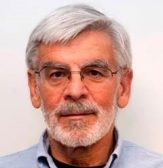Distinguished Senior Fellow, ARPA-E, USA
Research Interests: ISO market design and optimal power flow models
Biography: Dr. Richard O’Neill currently serves as a Distinguished Senior Fellow at the Advanced Research Projects Agency – Energy (ARPA-E). Prior to his time at ARPA-E, O’Neill served as the Chief Economic Advisor at the Federal Energy Regulatory Commission (FERC) and as the Director of FERC’s Office of Pipeline and Producer Regulation. During his time at FERC, O’Neill led the Chairman’s teams to develop policy and restructure the natural gas and the electric power markets, develop oil-pipeline rate index by benchmarking to actual industry costs, and increase the efficiency of FERC’s market software. Further, O’Neill led a group that developed transmission switching software that would ultimately become an ARPA-E project and was integral to the initial design of ARPA-E’s Grid Optimization Competition. Previously, he was Director of the Office of Economic Policy and Office of Pipeline and Producer Regulation. From 1978 to 1986, he directed oil and gas analysis and forecasting at the Energy Information Administration.
From 1973 to 1978, he was on the Louisiana State University computer science faculty.
From 1969 to 1973, he was on the University of Maryland business school faculty. He has a B.S. in chemical engineering, an MBA and a Doctorate in operations research from the University of Maryland. He is a Fellow of INFORMS and an Associate Researcher in the University of Cambridge Energy Policy Research Group. In 2016, he received the International Association of Energy Economics Outstanding Contributions to Energy Economics Award.
His work with governments and companies has included mathematical software, energy modeling, forecasting, open access, restructuring, competition, performance-based regulation, market power mitigation and market design. His work has appeared in journals and books in Applied Mathematics, Optimization, Operations Research, Computer Science, Energy, Electrical Engineering, Economics, and Law.

Sorry, comments are closed for this post.